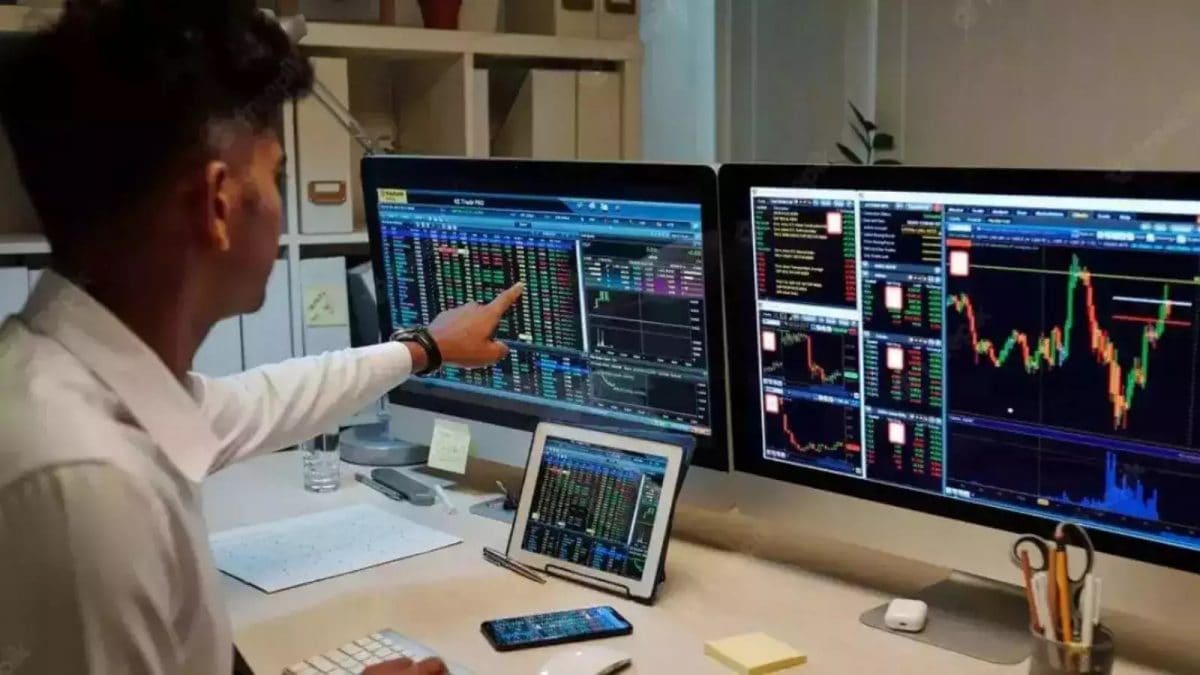Last Updated:
Samvat 2081 sees BSE Auto and Bankex lead gains, while BSE IT lagged due to global headwinds. HSBC and Nomura are bullish on auto stocks as Samvat 2082 begins.

According to HSBC, the GST-induced price reduction is likely to enhance automakers’ compound annual growth rate by 200-300 basis points over the next four to five years.
As Samvat 2082 begins today, Indian equity markets look back at a year of sharp sectoral divergence. While auto and banking stocks emerged as the key drivers of market gains through Samvat 2081, information technology shares turned out to be the biggest laggards, dragged down by global headwinds and weak earnings momentum.
The BSE IT index slipped nearly 16 per cent over the year, underperforming all major sectoral indices. The decline was largely attributed to sluggish global demand, higher H-1B visa costs, and reduced discretionary spending by clients in the US and Europe. Persistent macroeconomic uncertainty in advanced economies has forced companies to trim technology budgets, while concerns over rising visa fees and operational costs have further clouded the sector’s near-term outlook.
Analysts, however, see early signs of value emerging.
In contrast, the BSE Auto index staged a strong turnaround, ending Samvat 2081 with gains of 13 percent. The rebound followed an earlier slump of over 8 percent between October and July 2025. The revival gathered pace after the government announced a GST cut on select categories, sparking a wave of festive buying ahead of Ganesh Chaturthi, Navratri, and Diwali.
According to HSBC, the price reduction is likely to enhance automakers’ compound annual growth rate by 200-300 basis points over the next four to five years. Since the August GST revision, auto shares have surged between 6 and 17 per cent, prompting the brokerage to raise its FY27-28 earnings estimates by 4-14 percent. It has also issued fresh buy calls on Maruti Suzuki (Target: Rs 17,000), Hyundai Motor India (Rs 2,800), TVS Motor (Rs 4,000), M&M (Rs 4,000), and Ather Energy (Rs 600).
Nomura, too, pointed to a sustained recovery in the auto space, citing higher customer enquiries, improved bookings, and a stronger festive outlook.
The banking sector also had a strong run, with the BSE Bankex advancing 11 per cent during Samvat 2081. Momentum accelerated after September when the Reserve Bank of India (RBI) allowed domestic banks to finance mergers and acquisitions of non-financial corporations, including share purchases, a move that analysts termed a “game changer” for the industry.
According to SBI Research, if banks finance about 30 percent of the projected M&A debt in FY24, it could add nearly Rs 1.2 lakh crore in new credit, supporting overall lending growth amid slowing retail and corporate demand elsewhere.
Outside these outperformers, the broader sectoral trend was mixed. The BSE FMCG index slipped 4 per cent, while Oil & Gas eased 0.5 per cent and Capital Goods dipped 0.1 per cent. Realty and Power were among the major laggards, falling 7 per cent and 12 per cent, respectively. On the other hand, Healthcare gained around 2 per cent, while Telecom and Consumer Discretionary indices edged up 3 per cent each, highlighting the selective nature of this year’s market performance.
As investors light diyas to mark the start of Samvat 2082, the year ahead will test whether the strength in domestic consumption and bank credit can sustain market momentum, or if global volatility will once again shift the balance across sectors.
A team of writers and reporters decodes vast terms of personal finance and making money matters simpler for you. From latest initial public offerings (IPOs) in the market to best investment options, we cover al…Read More
A team of writers and reporters decodes vast terms of personal finance and making money matters simpler for you. From latest initial public offerings (IPOs) in the market to best investment options, we cover al… Read More
October 20, 2025, 08:34 IST
Read More






